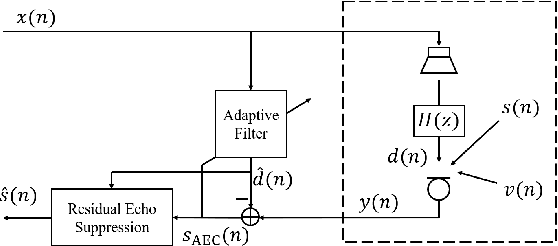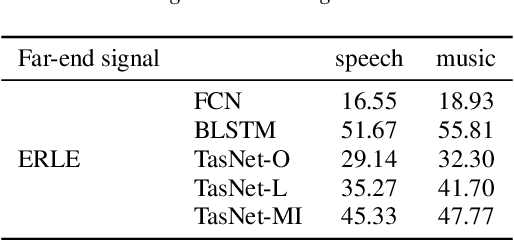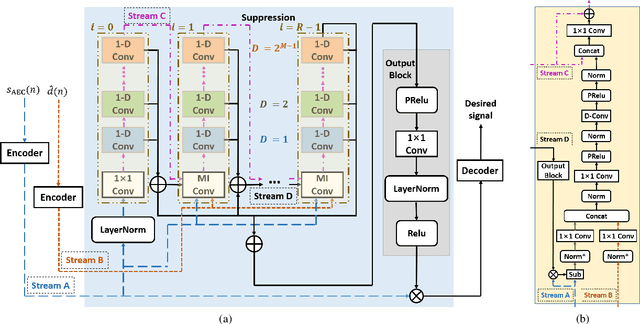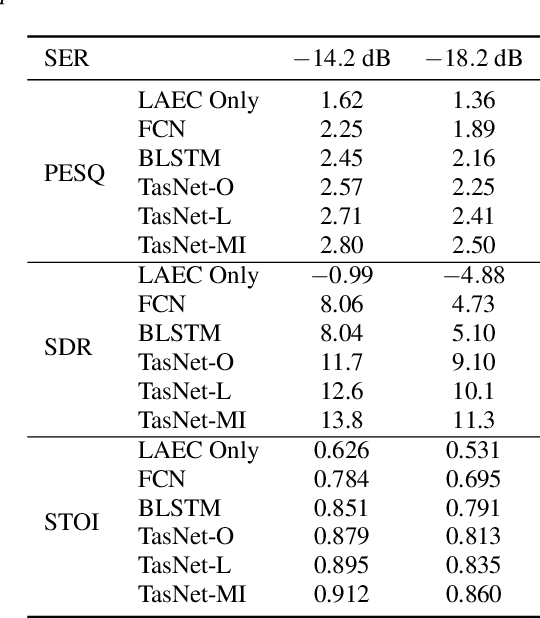Teng Xiang
Nonlinear Residual Echo Suppression Based on Multi-stream Conv-TasNet
May 15, 2020



Abstract:Acoustic echo cannot be entirely removed by linear adaptive filters due to the nonlinear relationship between the echo and far-end signal. Usually a post processing module is required to further suppress the echo. In this paper, we propose a residual echo suppression method based on the modification of fully convolutional time-domain audio separation network (Conv-TasNet). Both the residual signal of the linear acoustic echo cancellation system, and the output of the adaptive filter are adopted to form multiple streams for the Conv-TasNet, resulting in more effective echo suppression while keeping a lower latency of the whole system. Simulation results validate the efficacy of the proposed method in both single-talk and double-talk situations.
 Add to Chrome
Add to Chrome Add to Firefox
Add to Firefox Add to Edge
Add to Edge